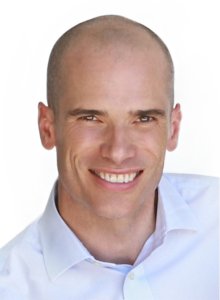
In his book, Ringgold shares his own intimate story of addiction and the trauma he suffered that led him to advocate music as a form of therapy to help others in pain, citing what he says shamans have known for millennia—music is a powerful, efficient, and effective tool for healing.
“We all know music is powerful and we all have a very personal, powerful relationship with music,” Ringgold explained in a recent interview on the Business Innovators Radio Network, “so I’m not introducing anybody to anything new—music is already a close friend of theirs. What I’m really doing is showing them how that old friend can help them in a way that talk therapy just can’t do.”
According to the Centers for Disease Control and Prevention, from 1999 to 2017, more than 700,000 people died from a drug overdose, and Ringgold says that because of the stigma of addiction, it doesn’t get the attention it so desperately deserves. But, he says optimistically, that is starting to change.
“The addiction treatment world is starting to realize there’s a limit to cognitive behavioral therapy, there’s a limit to medicated assisted therapy,” says Ringgold of using traditional treatment programs. “We need more experiential and non-verbal therapies,” he continues, “so you’re seeing more things like music therapy, dance and movement therapy, art therapy, equine therapy, and others become part of the treatment process.”
With the increased support of these non-traditional therapies, Ringgold concedes that now is the time for him to share his experience with music to help others. “There has never been a more needed time,” he says, “we’ve got to scale this, and if I can teach a man how to fish, how to use music for self care to help stay sober, so much better.”
The board-certified therapist says that one of the chief causes of addiction, whether drugs, sex, gambling, or a whole host of others, is trauma, and that with trauma, the road to recovery is seldom straight.
“It’s heavy and it’s very intense, and that’s why it’s often easier for addicts to not deal with recovery,” he says, “but with music therapy you’re harnessing the power of this tool that’s been around you forever—that you’ve enjoyed your whole life—to stay sober.”
Addiction recovery is an increasingly urgent topic and Ringgold’s new book, “Sonic Recovery: Harness the Power of Music to Stay Sober” addresses that urgency and is a must read for anyone facing addiction or anyone who knows someone seeking a road to recovery.
ABOUT THE AUTHOR
Tim Ringgold is a board-certified music therapist and Director at Sonic Divinity, LLC, in Orange County, California, where he provides music therapy to thousands of teens and adults in residential treatment.
As a sought-after speaker, he has shared the stage with some of the top minds on the subject of music and the brain, and in 2012, became the first person ever to give a TEDx talk on music therapy. Ringgold personally walked into his first 12-step program on Tuesday, Feb. 17, 2003, giving him first-hand knowledge of what it’s like to work and play a program of recovery.
To learn more about, Tim Ringgold, visit SonicRecovery.com
“Sonic Recovery: Harness the Power of Music to Stay Sober” is now available on Amazon.

